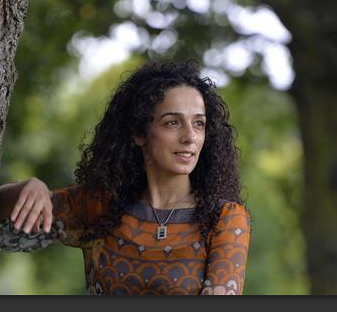November 08-2013

Some dissidents have begun returning to Iran to test the waters since Hassan Rohani became president.
One of them is Seraj Mirdamadi, a journalist who fled in 2009 to avoid the crackdown launched over the post-election street demonstrations.
He told Reuters he decided to go back on the basis of little more than a “feeling” and with no assurance that he would be welcome.
“I entered Iran on the night of Rohani’s inauguration and since then I’ve seen signs that have only confirmed my original feeling,” said Mirdamadi, 42.
However, he has been banned from leaving Iran and still potentially faces charges related to his criticism of government officials and interviews he gave the foreign media. He has been called in twice for questioning and is not yet allowed to work in Iran.
The regime appears to be struggling with how much of Rohani’s new openness is tone and how much is substance.
In the turbulent months after Mahmud Ahmadi-nejad’s disputed reelection in 2009, hundreds of Reformist campaign staffers, reporters, and lawyers left Iran and settled in Turkey, Dubai, Europe and the United States. Others had left in the years before during the broad move to suppress dissent.
Now, Iranians who want to go back have a tough decision to make: return and face limits on their work and movement and possible outstanding criminal charges, or remain in isolation far from their homes and families.
In interviews with Reuters, dissidents who have returned or plan to said they see real signs of an opening of Iran’s political sphere and greater tolerance for opposing views.
“The government itself is saying ‘We want to fix things,’” said Ebrahim Nabavi, a writer and satirist who plans to return to Iran in November after 10 years abroad. “Conditions have totally changed compared to Ahmadi-nejad’s time.”
Speaking at a New York hotel in September while visiting the UN General Assembly, Rohani told a crowd of Iranian-Americans his government would make it easier for them to visit Iran.
“This is the right of every Iranian, to visit their homeland,” Rohani said, to cheers and applause. “If I were to transmit your message to Iran, perhaps it is this: ‘Visiting Iran is our incontrovertible right.’”
But there is no guarantee government critics will be safe if they return. The Judiciary, dominated by conservatives and answering to Supreme Leader Ali Khamenehi rather than Rohani, is free to pursue the returnees.
Judiciary spokesman Gholam-Hossain Mohseni-Ejai said in July that Iranians who left can come back, but may face prosecution. He did not offer to tell Iranian expatriates whether there are any charges pending against them.
Mirdamadi, who returned in August, has no regrets despite the restrictions he faces. “I knew completely that I would not be allowed to leave Iran if I returned…. As someone who wants to speak about Iran and make criticisms of the government, I must have a physical presence in Iran,” he said.
Nabavi, 55, who plans to return next month, left Iran in 2003, after being imprisoned twice for his writings. Based in Brussels, he said he is determined to return because it is essential to his work to be able to interact daily with Iranians and the Persian language.
“I don’t want to be like opposition figures who stay outside Iran for decades and are thinking of an old Iran that doesn’t exist anymore,” he said. “Iran is what it is now. I want to go back.”
Nabavi said he predicts he will face restrictions upon returning, such as his passport being confiscated, and even be forced to serve a short prison term.
“It’s possible that for a year or 18 months they will be upset,” Nabavi said. “If I can’t say 100 percent of what I want to say, I’ll say 80 percent of it.”
Nazak Afshar, a former employee of the French embassy in Tehran, was arrested after taking part in the 2009 protests and accused of spying and acting against national security. She was put on trial but no judgment was issued, and with the intervention of the French government she was freed and left in 2009.
Now in France, Afshar, 52, plans to return t in November. She said she is encouraged by Rohani’s appointment of moderate figures to his cabinet.
“I think 100 percent it’s the start of a movement. I am very optimistic,” she said. But she added: “I’m taking a risk, really. I’m going with the possibility that I might be detained in the airport.”
Others are more hesitant. Masih Alinejad, 37, a former reporter in Iran, left a week before the 2009 elections to study abroad and stayed outside after the unrest and crackdown on reformist press.
During the protests, she interviewed families of protesters killed by the security forces, and her work in the last four years has focused on interviewing families of political prisoners.
“I hesitate between staying in Britain or returning to Iran,” Alinejad said. “My heart says go back but my profession tells me that, if I go, I won’t be able to write freely…. Whether or not I go back to Iran is a decision between my personal and professional lives, between my heart and my work.”
But living outside Iran has taken its emotional toll. “I’m slowly forgetting my mother’s face,” she said. “My whole life is speaking, interviewing, writing and reading in Persian. Just my body is in England; my spirit and thoughts are in Iran.”
Alinejad said she contacted a Judiciary official and a Majlis deputy, who both advised her she could be prosecuted if she returned.
Mirdamadi acknowledged that the government would have to go further to create a truly open political atmosphere in Iran. “We still have to see many other signs. But it seems a process has started,” he said. “To reach the favored conditions, we have a long way to go.”
